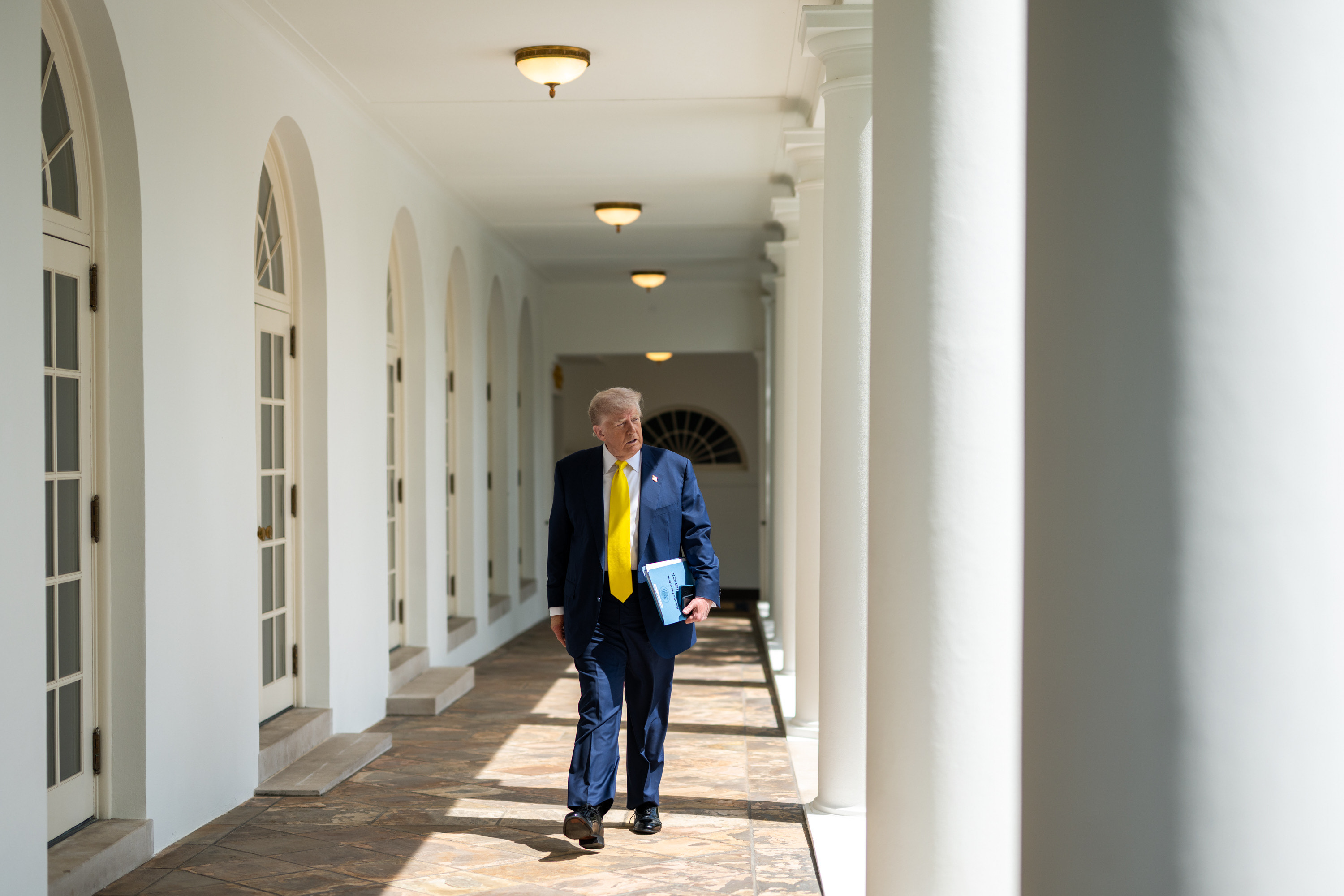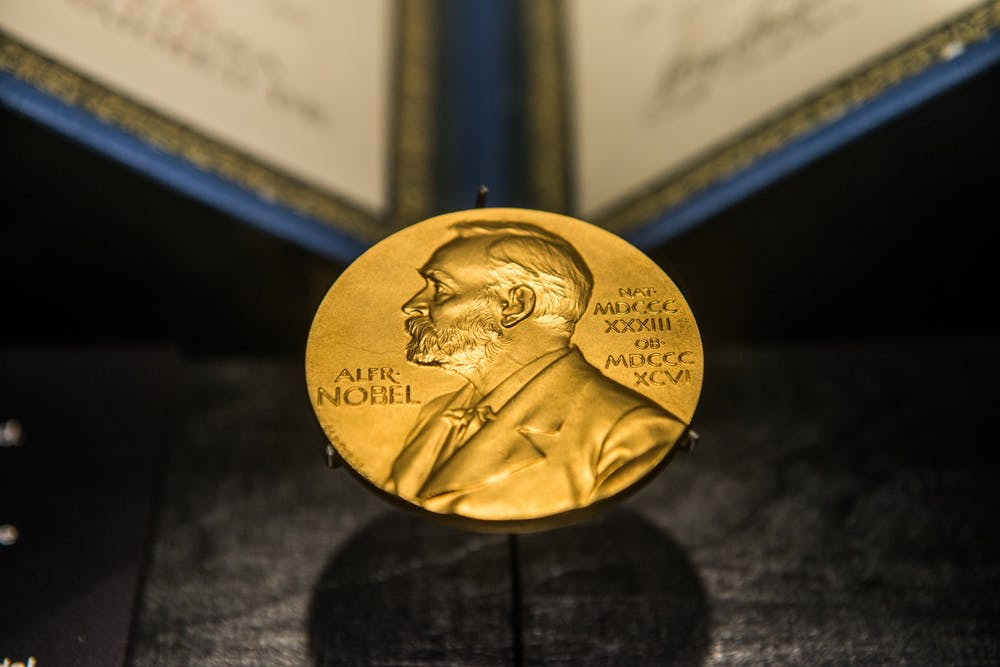In December this year, the 106th Nobel Peace Prize will be awarded in Oslo, Norway. From the very start in 1901, it has been surrounded by criticism over its independence and relevance.
The latest nomination of Donald Trump has contributed to the scrutiny, with many questioning his peacemaking legacy and calling his nomination “parodic”. However, if awarded, Trump would neither be the first American President nor the only controversial laureant. Honouring him would, nevertheless, symbolically support his grip on power and could be self-distructive for the award’s legacy.
The idea behind the Nobel Peace Prize, in the head of its inventor Alfread Nobel at the very end of the 19th century, was honouring a figure or organisation that significantly contributed to world peace. Preceding the globalisation era and the establishment of any states-consolidating international organisations, it was seen as a pacifistic endeavour motivating people with power to play a part in a more peaceful world order.
Serious Matter, Non-Serious Candidates
The symbolism accompanying the prize has been tempting from the very start, and, given that being nominated does not guarantee a win, competition has always been a part of the annual nomination process. Many nominations have been well-deserved and based on real accomplishments. Some other, on the other hand, purely sarcastic or controversial, driven by political or legacy desires and very doubtingly in line with what Nobel wanted the prize to embody.
Neville Chamberlain, the then British Prime Minister, was among the 1939 nominees, named for the signing of the Munich Agreement, which failed to avoid restraining Nazi Germany from invading its neighbors and starting the Second World War. His nomination became so controversial that its critics nominated Adolf Hitler for the prize, turning it into a satire and a playfield. Neither of the two, however, received the honour, given the outbreak of the war during which the awards were suspended, resuming again in 1944.
From the four nominated and rewarded American Presidents, Theodore Roosevelt (1906), Woodrow Wilson (1919), Jimmy Carter (2002) and Barack Obama (2009), the latter sparked significant criticism both principally and politically. Obama received the award only a year after winning the 2008 presidential election for his efforts to strengthen international diplomacy. This has been seen as an overstatement and racially motivated, given the fact that he became the first Black President in the United States’ history. Amid the controversy, even Obama himself had to take on the arguments in his acceptance speech, admitting that “compared to some other giants of history who’ve received this prize - Schweitzer and King, Marshall and Mandela - my accomplishments are slight”.

Trump The Real Peacemaker?
American President, regarded as the most powerful person on Earth, has all the tools needed to be a peacemaker and the protector of human security and democracy. President Donald Trump is certainly aware of the arsenal available to him and has got involved in peacemaking, although in his own, divisive style.
According to the White House, Trump has ended six or seven wars since returning to the office in January, virtually meaning one war each month in the role. This has been heavily scrutinised by experts in international relations who claim some of the cited wars had really not been wars and some clashes have not ended.
Despite doubts about the score of allegedly ended conflicts and his unprecedented style of diplomacy, Trump has recently secured the nomination for the Nobel Peace Prize. Nominees and nominators are usually confidential for 50 years, however, some global leaders have publicly announced they had nominated Trump for the award.
Among these leaders, whose motivation may well be to flatter Trump, are the Israeli Prime Minister Benjamin Netanyahu and Cambodian Prime Minister Hun Manet, with Armenia, Azerbaijan, Rwanda and some other countries expressing their support for Trump’s nomination.
More Than Just a Symbolic Award
Donald Trump has been very clear and public about his desire for the prize, and there are a few reasons as to why he aspires for it so much.
First and foremost, Trump cares deeply about being remembered as a historic leader. He has been relentless and ruthless while hunting for record-breaking achievements, on both domestic and foreign issues. Winning the Nobel Peace Prize would gain him recognition lasting well-beyond his presidency and for many years to come.
Competition with the former American Presidents who were awarded also fuels Trump’s craving for the prize. The White House often harshly criticises among other previous administrations, both Jimmy Carter and Barack Obama. To receive the Nobel Peace Prize himself would, symbolically, put Trump on an equal footing with these two, and symbolically even higher than all the other former US Presidents who were not given the prize.
Aside from his desire for legacy, glory and winning, Donald Trump is a born businessman and showman who loves shiny, expensive things. And the physical Nobel Peace Prize ticks both of these boxes - it is a large 18-karat gold medal with the head of Alfred Nobel. The winner receives it at a prestigious ceremony on the 10th of December in the Norwegian capital Oslo in front of many cameras streaming the event all over the world. What might be less known to the public is the financial reward - although the exact cash prize has fluctuated over the years, the sum is usually close to or a bit over $1 million. The recipient can spend the entire sum according to their own consideration and do not have to disclose it, although it is expected to be donated for humanitarian purposes. Barack Obama, for example, received a cash prize worth $1.6 million in current value, and opted to donate it to several charities.
The Self-Destruction
Now that Donald Trump is reportedly amongst the nominees, it is down to the Nobel Peace Prize committee to decide whether to give him the award or not. And it might cause the five-members committee some headache.
Doubts over Trump’s real eligibility for the award may be well overlooked due to his influence, contacts and just out of overall flattery of him. The Norwegian Nobel Committee, which selects the winner, is appointed by the Norwegian Parliament, meaning it's directly linked to the country's government. It is hard to see the committee not being swayed at least a bit by Trump’s figure, when the government in Oslo could eventually benefit from satisfying the US President.
On the other hand, if Donald Trump is given the award, the critical debate over the independence of the Nobel Peace Prize would surely head up and damage the prize’s reputation and value. Furthermore, Trump’s legacy on peacemaking is also dividing opinions and may even negatively affect the Norwegian government domestically and internationally.
Conclusion
Throughout its history, the Nobel Peace Prize has l always had many opponents. Invented before the tumultuous 20th century, which saw the establishment of the UN, NATO and the development of the current world order, questioning the relevance of the reward is justified. Additionally, given the fact that the Nobel Committee which decides on the winner is appointed by the Norwegian government, the independence of the winner selection should also be scrutinised.
Donald Trump is not the first, and not the last either, US President nominated for the prize, but will be remembered as the one who wants it certainly the most. If chosen, he would join the four former American Presidents who were nominated and received the award. He is, however, a decisive figure with a questionable record on peacemaking, and giving him the prestigious honour could create trouble for both the future of the Nobel Peace Prize and the Norwegian government.
The question remains: Is the world ready to let Trump lose the Nobel Peace Prize he badly wants to win?
 Renata
Pernegrova
Renata
Pernegrova